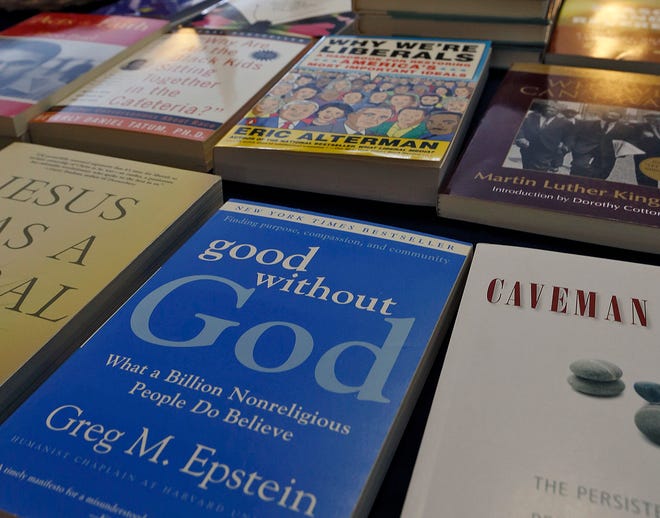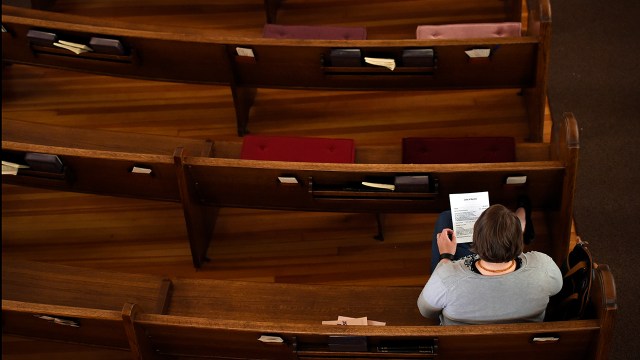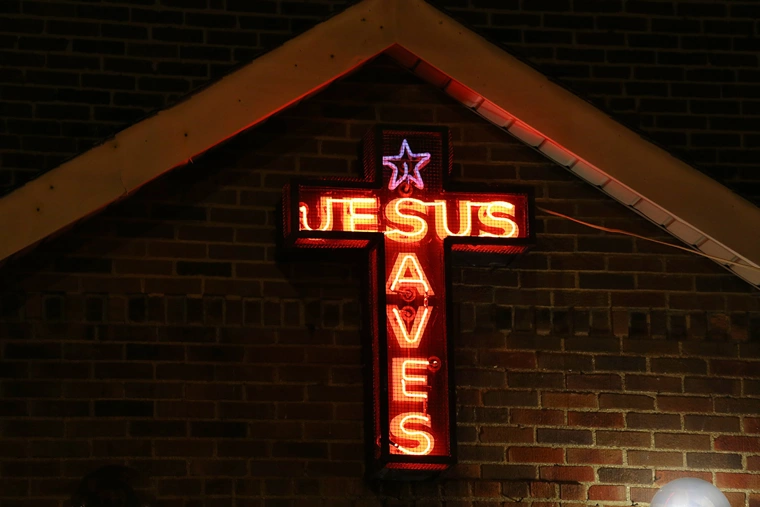Greg Epstein has written a book that is catching the attention of both Christians and humanist atheists. It's titled, "good without God--What a billion Nonreligious People Do Believe."
Newspapers across the country have been publishing some form of a narrative that leaves the reader wanting to read his book, and believing atheism is on the rise.
Just as a life without God is hollow and ultimately eternally destructive, so is the notion that atheism is on the rise. It isn't.
Be informed, not misled.
How secularists view Christianity.
The Columbus Dispatch is one of those newspapers celebrating the "surge" in non-belief.
Particularly non-belief in God.
The Columbus Dispatch staff rely heavily upon a Pew Research Center study that claims "About three-in-ten US adults are now religious 'nones'."
The staff says, "Those who are religiously unaffiliated as a share of the population is up 6 percentage points higher than it was five years ago and 10 points higher than a decade ago."
Then the newspaper jumps into the deep end of their very shallow pool and begins an all-out promotion to draw uninformed, or searching people into their various atheist support groups in the area.
As I said, over the past couple of weeks newspapers across the country have been publishing something similar.
Among the groups the paper promotes are the American Humanist Association, and a local church.
"First Unitarian Universalist Church," they say, "offers a supportive community in its congregation as it is pro-science, pro-reason and pro-evolution."
The local church also "hosts an Atheists and Agnostics Circle that meets monthly for programming," the Dispatch reports...and on and on they go.
My point is that when Pew or other similar research companies publish studies on religion, they always talk a lot about the "nones"---meaning those who check the box "none of the above" when asked which church group they affiliate with. And the "nones" are always included in the non-religious or atheist categories.
As it turns out, Christianity is alive and well in the world.
Here's a much more accurate view of Christianity in the culture.
If you see more empty pews or folding chairs at your church, then see the relentless attack on biblical Christianity and its values and principles, one can be inclined to believe the naysayers---who personally want Christianity to be in decline.
The Christian Post said yesterday, "Religious populations are growing faster than atheists worldwide, and two Christian denominations standout."
Many of us remember the neon sign many of the gospel missions put up over the door of the downtown mission: "Jesus Saves."
Well, that message has not been lost---even on this generation.
The Christian Post drew their story from a recent survey published by Lifeway. The Post says, "Despite an increase in the overall number of atheists worldwide, new research reveals that the population of religious people is now growing at a faster pace than that of their secular counterparts."
Lifeway identifies 7 "Encouraging trends of global Christianity in 2022." I suggest you read them. They're linked above.
The Post says this:
The 2022 Status of Global Christianity report includes statistics about Christianity from 1900, 1970, 2000, and mid-2022 and features projections for 2025 and 2050. The data found that the population of “religionists,” those who subscribe to a particular religion, grew at a rate of 1.27% between 2000 and 2022. By contrast, the number of atheists only grew at a rate of 0.18% in the same time period.
While the number of atheists in the world has increased from approximately 141.5 million in 2000 to about 147 million now, the number of atheists remains below the record high of 165,156,000 measured in 1970. The number of atheists is predicted to decrease to approximately 143 million by 2050. The number of religionists increased from about 5.3 billion in 2000 to roughly 7 billion now and is projected to approach 9 billion by 2050.
Another encouraging trend touched upon by Lifeway is the growth of Christianity in particular. The number of Christians worldwide increased 1.17% from 2000 to 2022.
Lifeway also noted this:
Christian denominations that experienced the fastest growth rates are Evangelicals (1.8%) and Pentecostals/charismatics (1.88%). The increase in the number of Pentecostals worldwide is expected to continue at a rapid pace. While fewer than 1 million people across the globe identified as Pentecostal in 1900, that number is expected to top 1 billion in 2050.
By 2050, Pentecostals could account for roughly one-third of the 3.33 billion Christians. Pentecostals were measured as the second-largest group of Christians in 2022, with Catholics taking the top spot. There were about 1.25 billion Catholics in 2022, and that number is expected to rise to around 1.5 billion by 2050.
Lifeway also noted that Christianity is growing the fastest in the global south, consisting of Africa, Asia, Latin America, and Oceania. The share of Christians in Africa soared by a rate of 2.27% in the past 22 years. Asia, Latin America, and Oceania also saw rapid growth rates in the number of Christians measured at 1.50%, 1.09%, and 0.73%, respectively.
This while atheism has decreased and is expected to continue to do so in the coming years.
Takeaway
Jesus, Himself said, "The gates of hell shall not prevail against my church."
Neither will the First Universalist Unitarian church. Or any other group.
He also said, "Go ye therefore, and teach all nations, baptizing them in the name of the Father, and of the Son and of the Holy Ghost" (Matthew 28:19).
Biblical Christianity is on the rise.
Be Informed. Be Discerning. Be Vigilant. Be Engaged. Be Prayerful.



